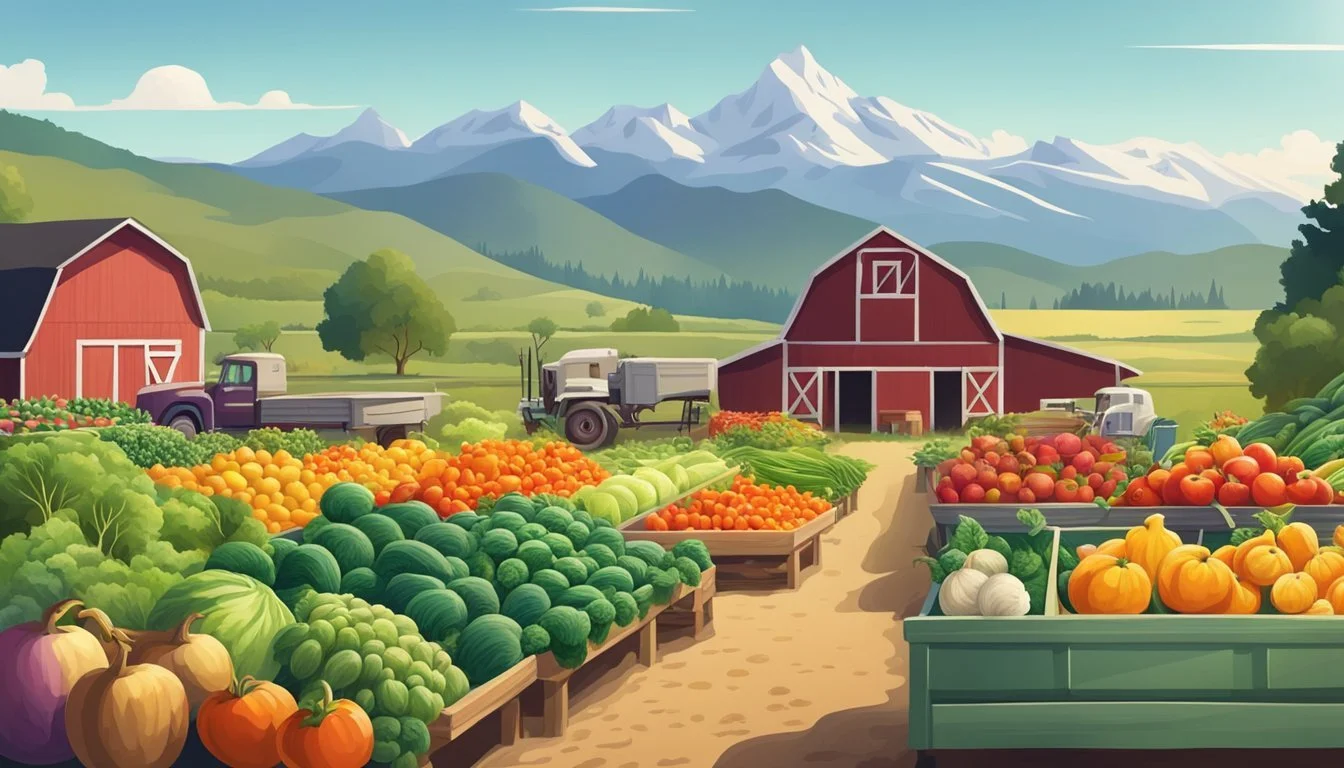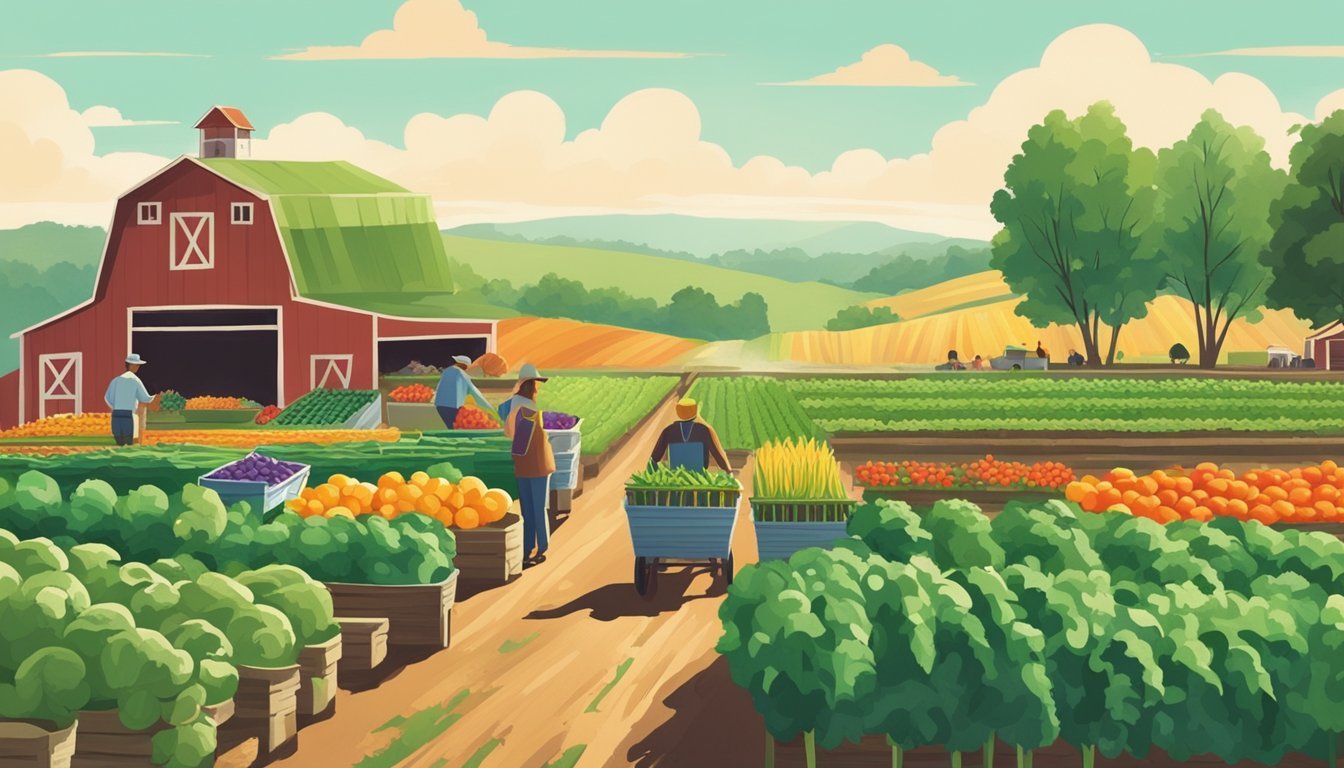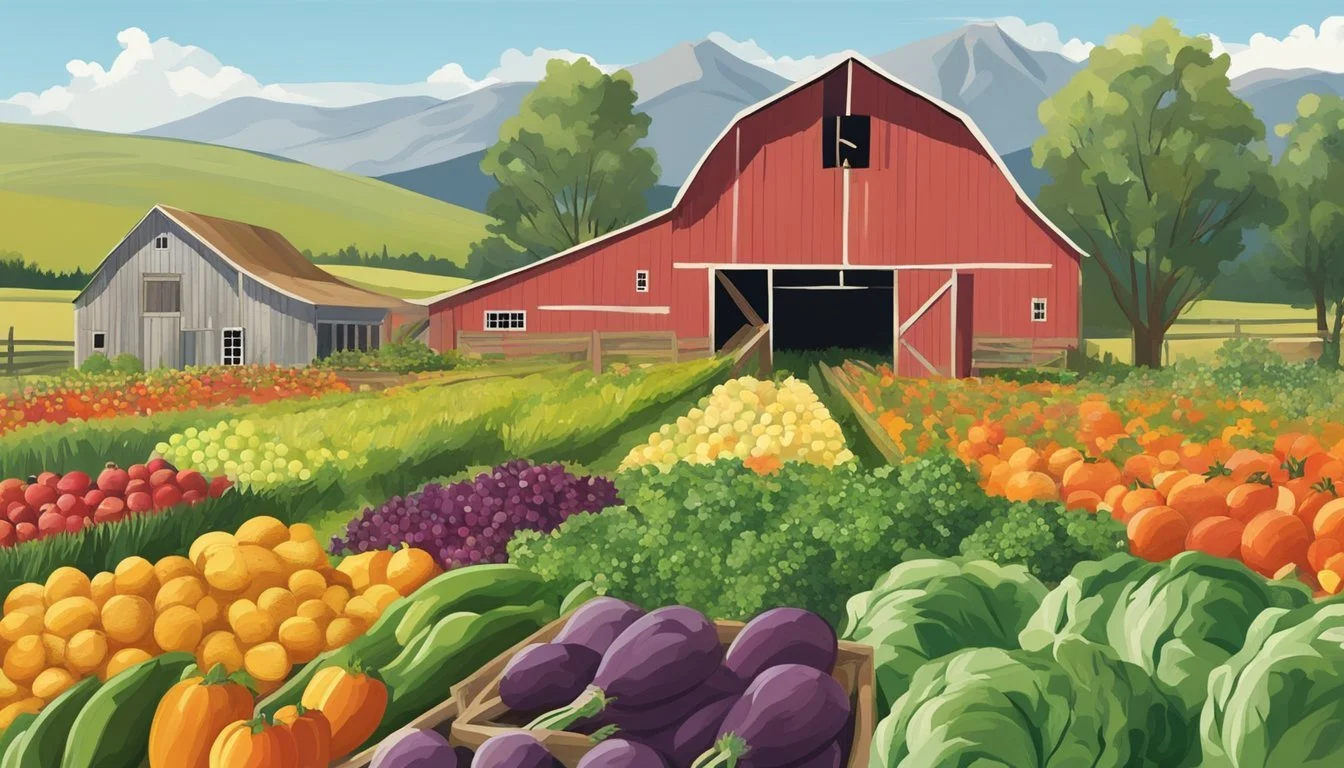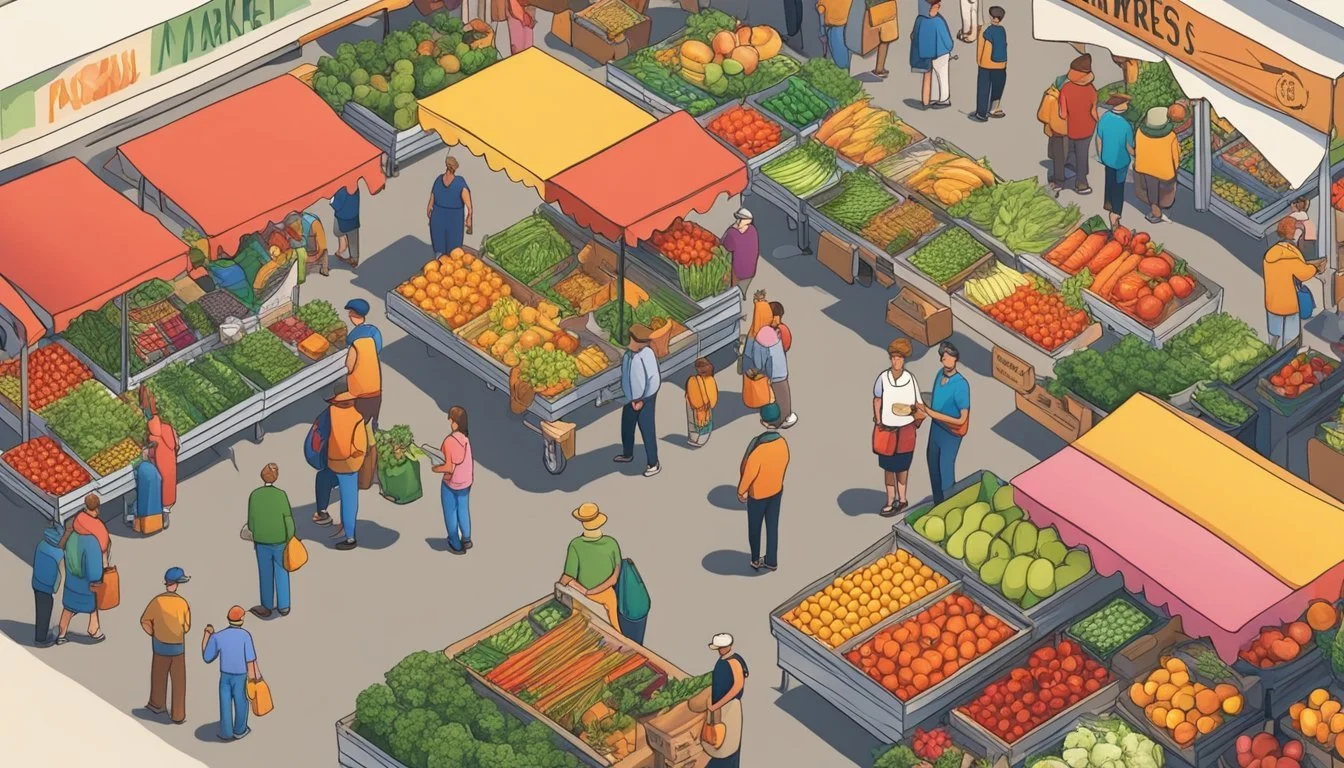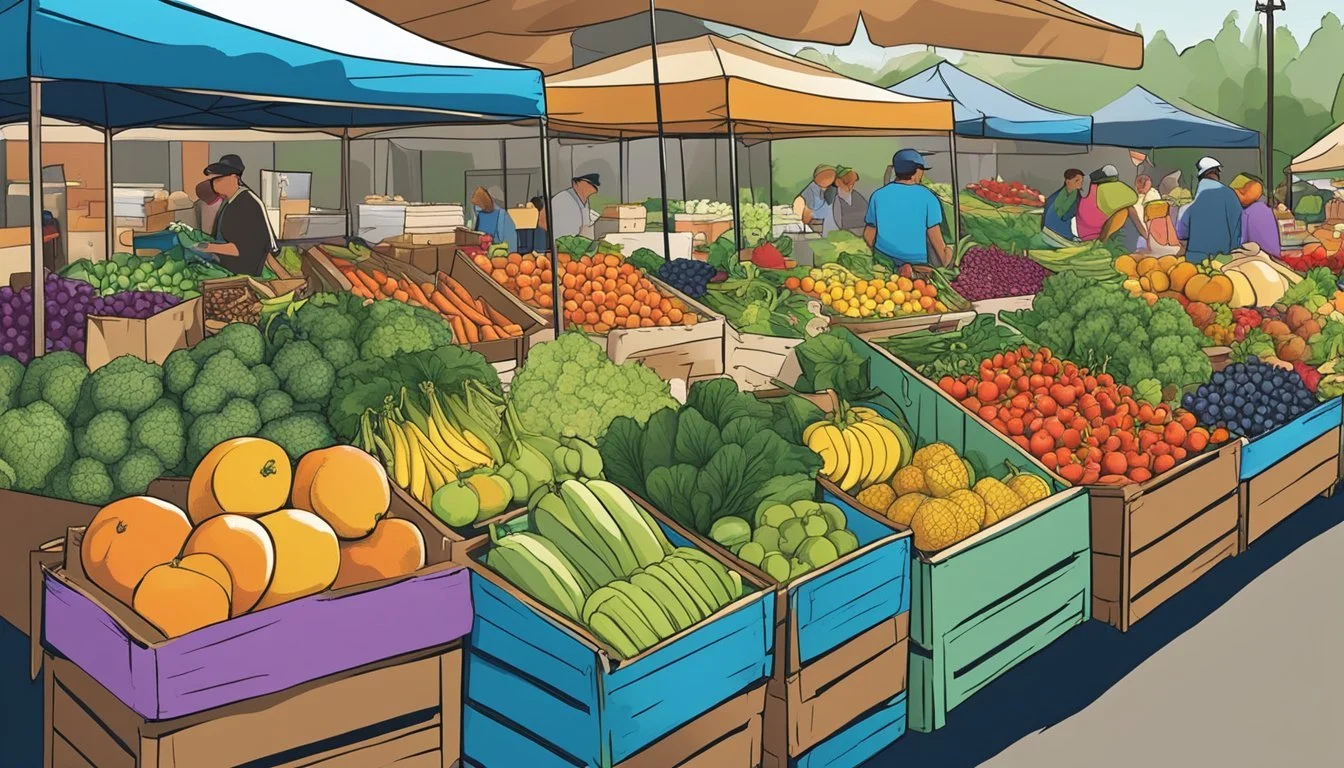Community Supported Agriculture (CSA) in Boulder, CO
A Guide to Local Farm Partnerships
Community Supported Agriculture (CSA) in Boulder, Colorado, represents a robust model of food distribution that fosters direct links between local consumers and farmers. By purchasing CSA shares, residents invest in their local agriculture, thus ensuring the availability of fresh, seasonal produce directly from a farmer's field to their dinner tables. This model not only strengthens the local food economy but also promotes sustainable farming practices, as it supports farmers who employ environmentally friendly methods.
In Boulder's thriving local food scene, the CSA system has been adopted by numerous farms, offering residents a variety of options to participate. Members sign up for a season's worth of produce, typically distributed weekly, sharing in the inherent risks and bounties of agricultural production. This symbiotic relationship between community and grower empowers consumers to trace the journey of their food from seed to plate and become a part of their local food system.
The impact of CSAs extends beyond just economic advantages. They foster a sense of community and provide an educational space for individuals and families to learn about the importance of sustainable agriculture. In Boulder, surrounded by the picturesque landscape of Colorado, CSAs contribute to the conservation of the land and the well-being of its residents by prioritizing the environmental integrity and the nutritional quality of the food produced.
Understanding CSAs
Community Supported Agriculture (CSA) is a model that connects consumers directly to local farms, fostering community involvement and promoting sustainable agriculture.
CSA Concept and Benefits
Community Supported Agriculture (CSA) involves individuals who pledge support to a farm operation so that the farmland becomes the community's farm, with growers and consumers sharing the risks and benefits of food production. CSA members typically pay at the start of the growing season for a share of the anticipated harvest; once harvesting begins, they periodically receive shares of produce. Organic farming practices are common in CSA programs, contributing to healthier food and a healthier environment.
Benefits for consumers include:
Access to fresh, organic produce
Exposure to new vegetable varieties and farming knowledge
A stronger connection to the local environment and seasons
Benefits for farms involve:
A guaranteed market for their produce
Improved cash flow with early season capital
A deeper connection with the community
History of CSAs in Boulder County
The history of CSAs in Boulder County aligns with a broader trend towards sustainable and community-focused agriculture practices. The movement gained momentum as residents prized fresher, locally-grown produce that supported their health and the health of the land. Over time, Boulder County has seen a rise in CSAs, with farms both large and small offering shares that provide a steady array of vegetables throughout the farming season.
Types of CSA Programs
In Boulder County, a variety of CSA programs are available, catering to different community needs and preferences. These can be broken down generally into:
Full-share programs: Feed approximately 3-5 people, commonly offered by farms such as the 63rd Street Farm.
Half-share programs: Designed for smaller households of about 2-3 people.
Each CSA program in the county may differ in terms of produce variety, the length of the growing season, and whether they offer additional products like eggs or honey. Consumers can select which CSA best fits their lifestyle while engaging directly with the process of food production.
Local CSA Farms
Boulder, CO, is home to several local CSA farms offering a variety of organic and sustainably farmed produce. These farms connect consumers directly to the food they eat, fostering community while providing fresh, local, seasonally grown produce.
Aspen Moon Farm
Location: Longmont, CO
Practices: USDA certified organic
Aspen Moon Farm provides a variety of organic vegetables and is recognized for its commitment to environmental stewardship. The farm offers CSA shares that deliver fresh produce to its community members throughout the growing season.
Red Wagon Organic Farm
Focus: Organic vegetables and practices
Red Wagon Organic Farm operates under the core principles of organic agriculture, ensuring that Boulder residents have access to nutritious, chemical-free produce. They are known for their diverse crop selection, enriching local diets and markets.
Cure Organic Farm
Commitment: Educating and engaging community
Cure Organic Farm contributes not only fresh organic produce through their CSAs but also focuses on educating the public about sustainable farming practices. They engage community members through farm events and volunteer opportunities.
Stonebridge Farm
Establishment: Known for a long-standing CSA model
Stonebridge Farm's CSA is a hallmark in the area, emphasizing the importance of soil health and ecological balance in their farming methods. They provide a wide array of vegetables, demonstrating the productivity of organic farming.
Frog Belly Farm
Approach: Regenerative agriculture
Frog Belly Farm takes pride in their regenerative farming techniques, which aim to restore the health of the land. Their CSA shares are a testament to their philosophy, showcasing a bounty of local farm produce.
Bonavida Growers
Specialty: Cultivation of both traditional and unique crops
Bonavida Growers stand out with their diverse offerings of standard and uncommon vegetables, making each CSA share a discovery of taste and nutrition. They are committed to bringing the best of local agriculture to the Boulder community.
The CSA Experience
Community Supported Agriculture (CSA) in Boulder, Colorado, offers residents a direct connection to high-quality, fresh produce and more. Local farms provide a variety of shared harvest options, reflecting the region's rich agricultural diversity.
Signing Up for a CSA
Prospective shareholders in Boulder's CSA programs typically register in advance of the growing season. Sign-up periods can vary by farm but are often open as early as the first quarter of the year. For example, one CSA option allows sign-ups until June 1, 2024, ensuring members secure their share of the harvest for the upcoming season.
Start Date: Generally around May
End Date: Usually by October
Example: Boulder County Farmers Markets offers CSA sign-ups with varying prices and the flexibility to choose any 20 visits between June and October.
Seasonal Availability
The bounty shareholders receive from a CSA is dictated by seasonal availability. Shares usually include an assortment of vegetables, and some CSAs may offer fruit, flowers, and eggs. In Boulder:
June to November: Shareholders can enjoy fresh seasonal produce starting with greens and herbs, transitioning to summer produce like tomatoes and peppers, followed by fall root vegetables and squashes.
Full or Half Shares: Options for different household sizes are available, ensuring an appropriate quantity of produce.
Shareholder Responsibilities
When joining a CSA, shareholders have a set of responsibilities, such as timely pickups from designated locations. With investment in the local agriculture, they contribute to the farm's success and share in both the bounty and the risks of farming.
Pick Up Locations: Typically given, like "4975 Jay Rd, Boulder, Colorado 80301".
Pick Up Days: Often on a set schedule, like "Friday to Sunday".
Joining a CSA is not only a choice for fresh, locally-grown food but also an active partnership between the shareholder and the farm.
Community Impact
Community Supported Agriculture in Boulder, CO positively engages the local community, supports the region’s economy, and promotes environmental stewardship through partnerships and direct agricultural practices.
Supporting Local Economy
Community Supported Agriculture (CSA) sustains Boulder’s local economy by elevating the financial stability of the farmers. Direct contributions from the community through CSA memberships provide a stable income stream to the producers. Additionally, members of the community benefit by receiving fresh, seasonal produce, strengthening the economic cycle within the local area.
Direct financial support for farmers: CSA members' payments help stabilize farm income.
Local spending: Members typically spend money within the community, amplifying the economic impact.
Partnerships with Local Restaurants
Collaborations between CSA programs and local Boulder restaurants underscore the bond between agriculture and cuisine. For example, North Field Farm supplies fresh produce to local dining establishments, ensuring that Boulder's tables are graced with home-grown flavors.
Farm-to-table: A synergy between farms and restaurants that amplifies Boulder's culinary scene.
Quality and freshness: Restaurants receive the freshest ingredients, elevating the dining experience.
Environmental Stewardship
CSA practices in Boulder support diverse crop production, which contributes to healthier ecosystems. By having a variety of plants with different root systems, the soil fertility is improved, directly benefiting the environment. This alignment with ecological principles demonstrates a commitment to maintaining the local land’s vitality.
Crop diversity: Improves soil health and contributes to the balance of local ecosystems.
Sustainable practices: CSAs in Boulder prioritize ecological impact, furthering environmental stewardship.
CSA Logistics
Community Supported Agriculture (CSA) programs in Boulder, Colorado, offer structured systems for consumers to receive fresh produce while supporting local farmers. CSA logistics in Boulder cover the key areas of collection routines, financial arrangements, and involvement opportunities.
Pick-Up Locations and Schedules
CSA members typically collect their shares of produce from designated pick-up locations. For instance, one of the farms provides 22 weeks of vegetable shares from May 23rd through October 19th. Pick-up schedules are pre-determined and are often on a specific day of the week, such as Saturday, to ensure fresh delivery.
63rd Street Farm: 3796 63rd St., Boulder, CO – Pick-ups on Saturdays
Boulder JCC: Hosts Tuv Ha'Aretz, Boulder’s Jewish CSA with Red Wagon Farm
Payment and Pricing Structure
Pricing for CSA shares varies based on several factors including share size and farm offerings. A full share suitable for 3-5 people or a half share for 2-3 people are common options. Many CSAs operate on a seasonal front-payment model to cover production costs effectively.
Full Veggie Share: Expected to feed 3-5 individuals
Half Veggie Share: Suits 2-3 individuals
Working Shares and Volunteer Opportunities
Some CSA programs offer working shares where members contribute labor in exchange for produce, fostering a deeper connection to the farm and community. These opportunities encourage a cooperative spirit and make CSA participation more accessible.
Volunteer Options: Exchange of farm work for reduced pricing or shares
Engagement: Encourages community involvement and education about sustainable agriculture
Additional Offerings and Varieties
In Boulder, Colorado, Community Supported Agriculture (CSA) is much more than just seasonal vegetables. Members have access to an array of specialized shares and locally-produced artisan goods that accentuate their weekly produce baskets.
Specialty Shares
Boulder’s CSA programs often extend beyond traditional produce. Here are some specialized options:
Mushroom Shares: Foraging enthusiasts can rejoice in mushroom shares offering a variety of locally-grown fungi.
Herb Shares: Fresh herb shares provide a seasonal selection to elevate culinary creations with vibrant flavors.
Meat Shares: With an emphasis on sustainability, some CSAs provide grass-fed beef, as well as pork shares from ethically-raised animals.
Goat Shares: Those looking for dairy alternatives might opt for goat shares. These can include a range of goat dairy products from milk to cheese.
Local Artisan Products
CSAs in Boulder also support the local economy by offering goods from regional artisans. Examples include:
Handcrafted Cheeses: Small-batch, artisan cheeses crafted from the milk of local dairies.
Freshly Baked Breads: A selection of breads baked with care by local bakers, often using organic grains.
Preserved Goods: Seasonal fruits and vegetables are preserved by local artisans, available for members to enjoy year-round.
Handmade Soaps: Artisan soaps featuring natural ingredients sourced from within the community.
Resources and Further Reading
Community Supported Agriculture (CSA) has been an integral part of Boulder's commitment to organic agriculture, local food production, and community engagement. Those interested in participating in CSAs or learning more about their impact can explore the following resources:
Boulder JCC and Tuv Ha'Aretz CSA: In partnership with Red Wagon Farm, the Boulder Jewish Community Center offers an annual CSA program from May through October. For more information: Boulder JCC CSA
63rd Street Farm: Located just outside of downtown Boulder, this farm provides fresh, organic vegetables for 23 weeks of the year. To learn more about their CSA offerings: 63rd Street Farm CSA
North Field Farm: Part of the Nyland Cohousing community in Lafayette, CO, and known for using organic methods, though not certified. CSA shares are available seasonally: North Field Farm CSA
CSA Colorado Guide: For an extensive list of CSA programs across Colorado, this guide lists 139 farms where individuals can support local agriculture: CSA Colorado Guide
University of Colorado Environmental Studies Program: Offers insights into how CSAs can positively impact the environment and local communities. Contact details: Environmental Studies Program
Local Harvest: A national resource that lists local CSAs by area, with search capabilities for Boulder, CO: LocalHarvest CSA Search
These resources provide avenues for education and engagement with preservation practices and food production methodologies. They offer a confident starting point for anyone looking to deepen their understanding of CSAs and organic agriculture.

